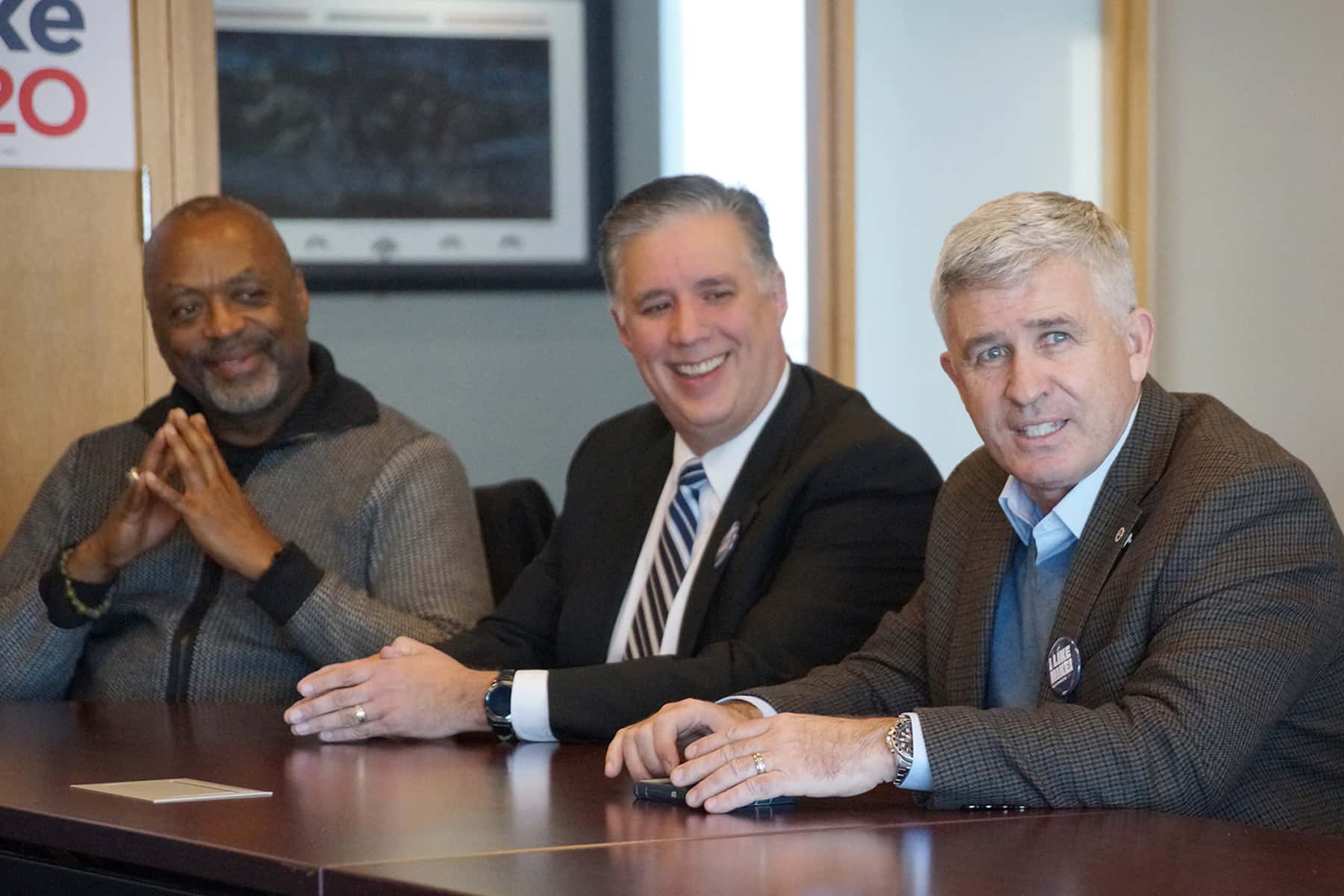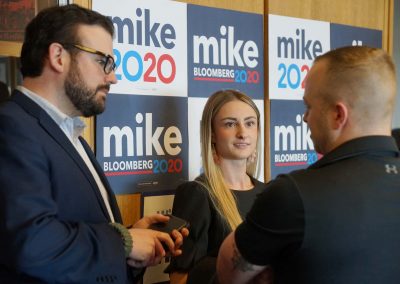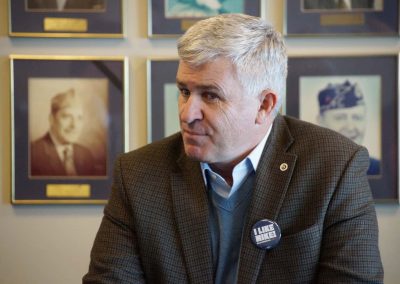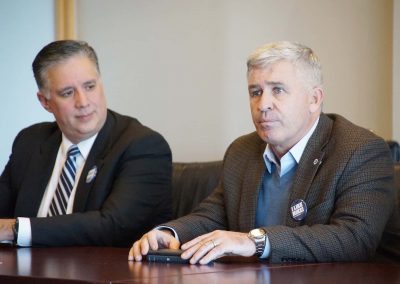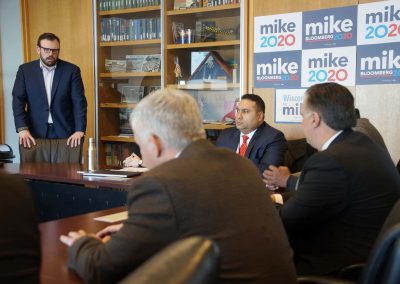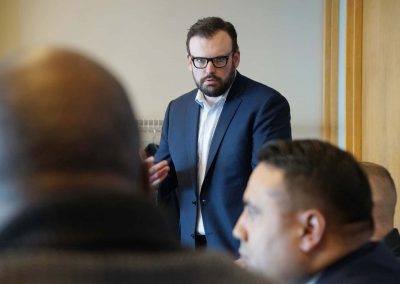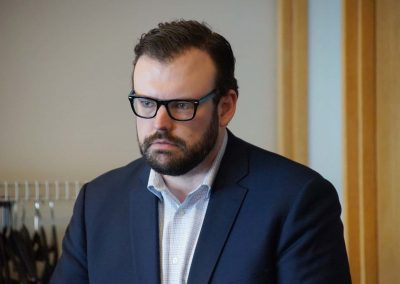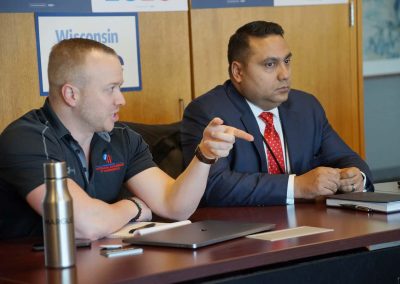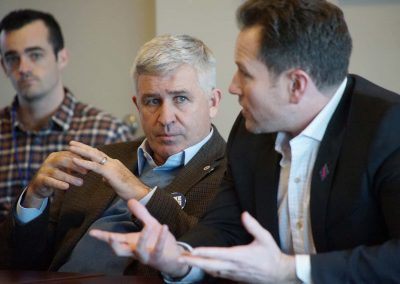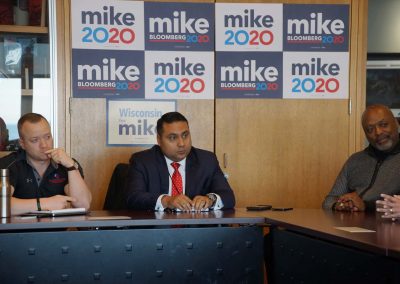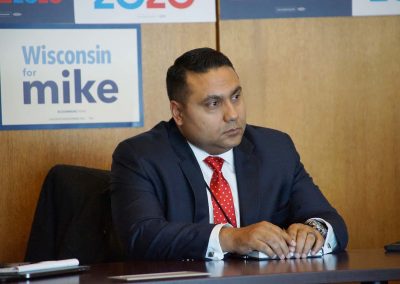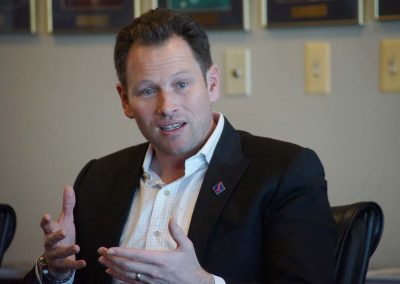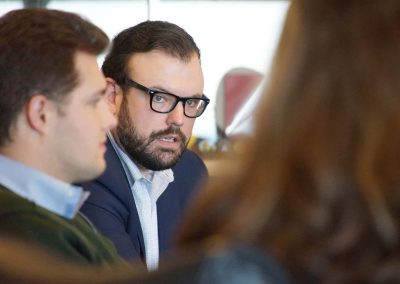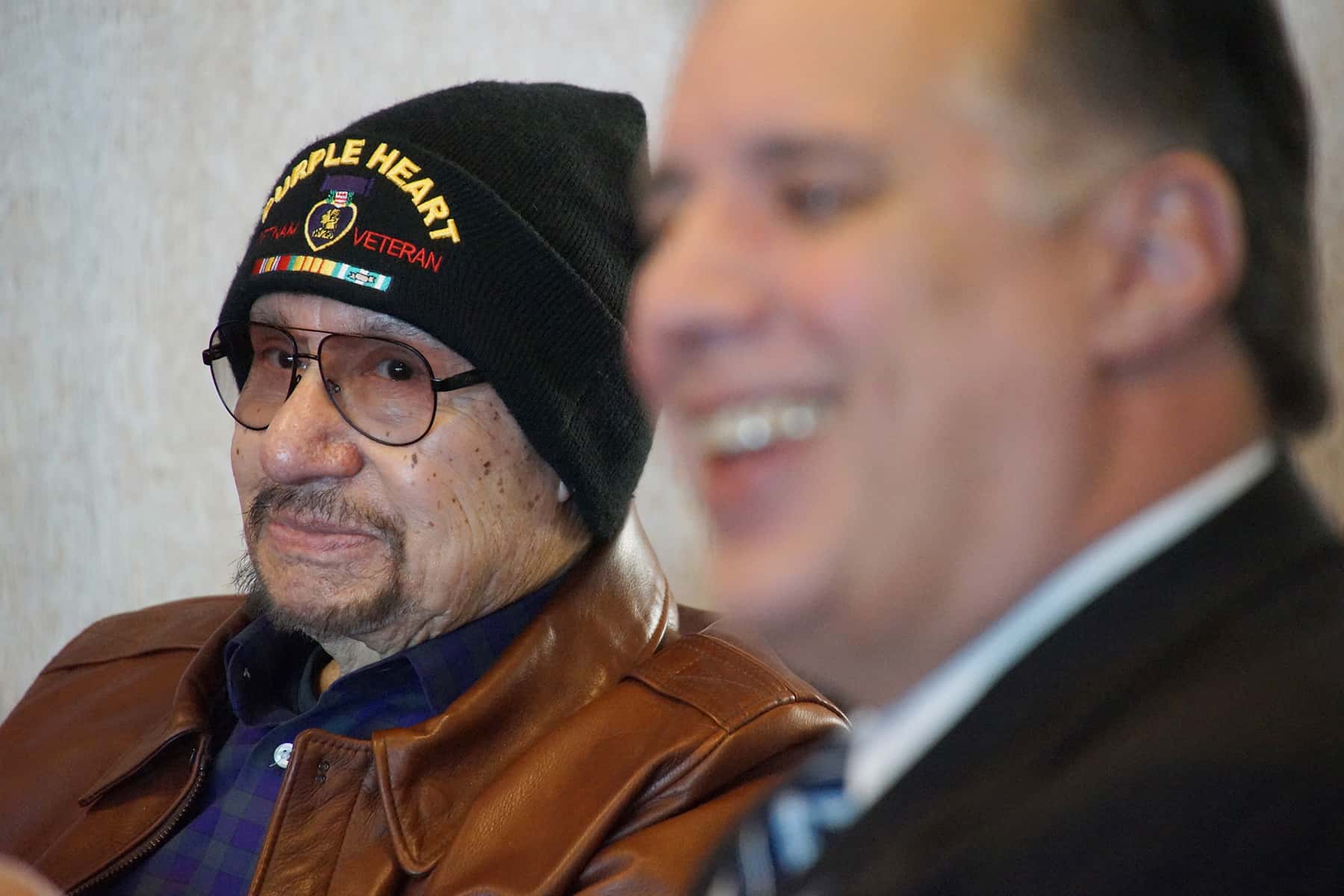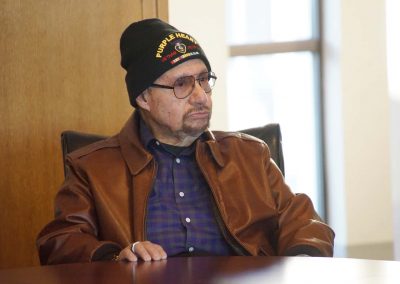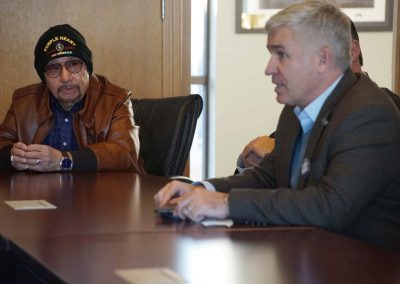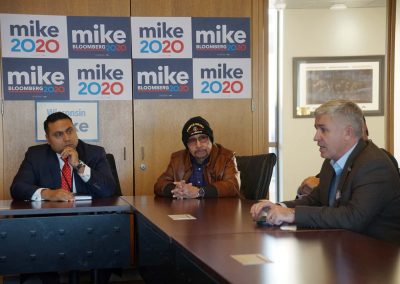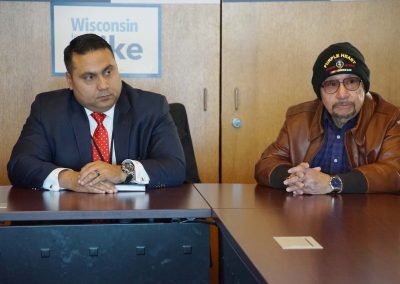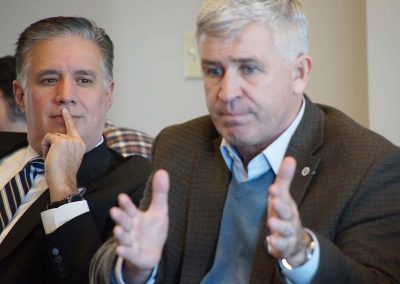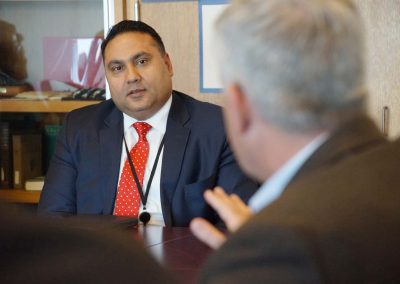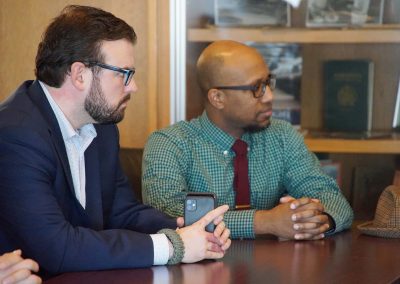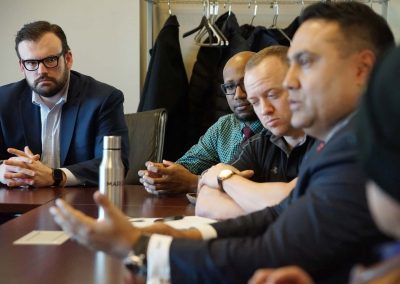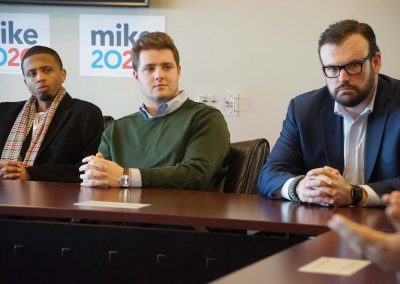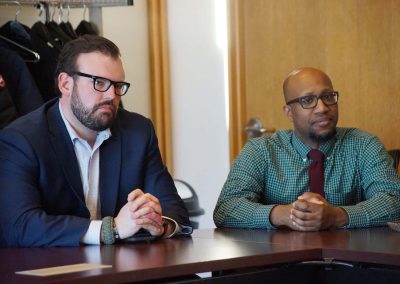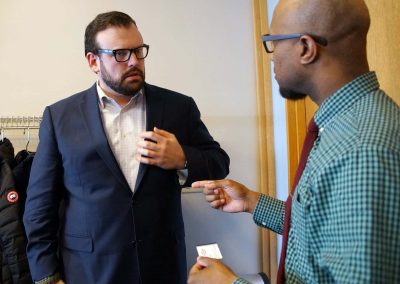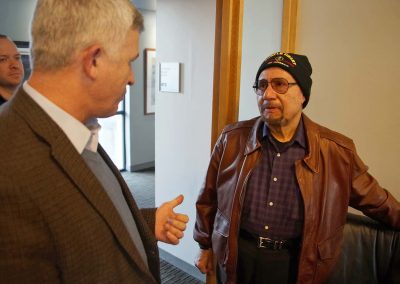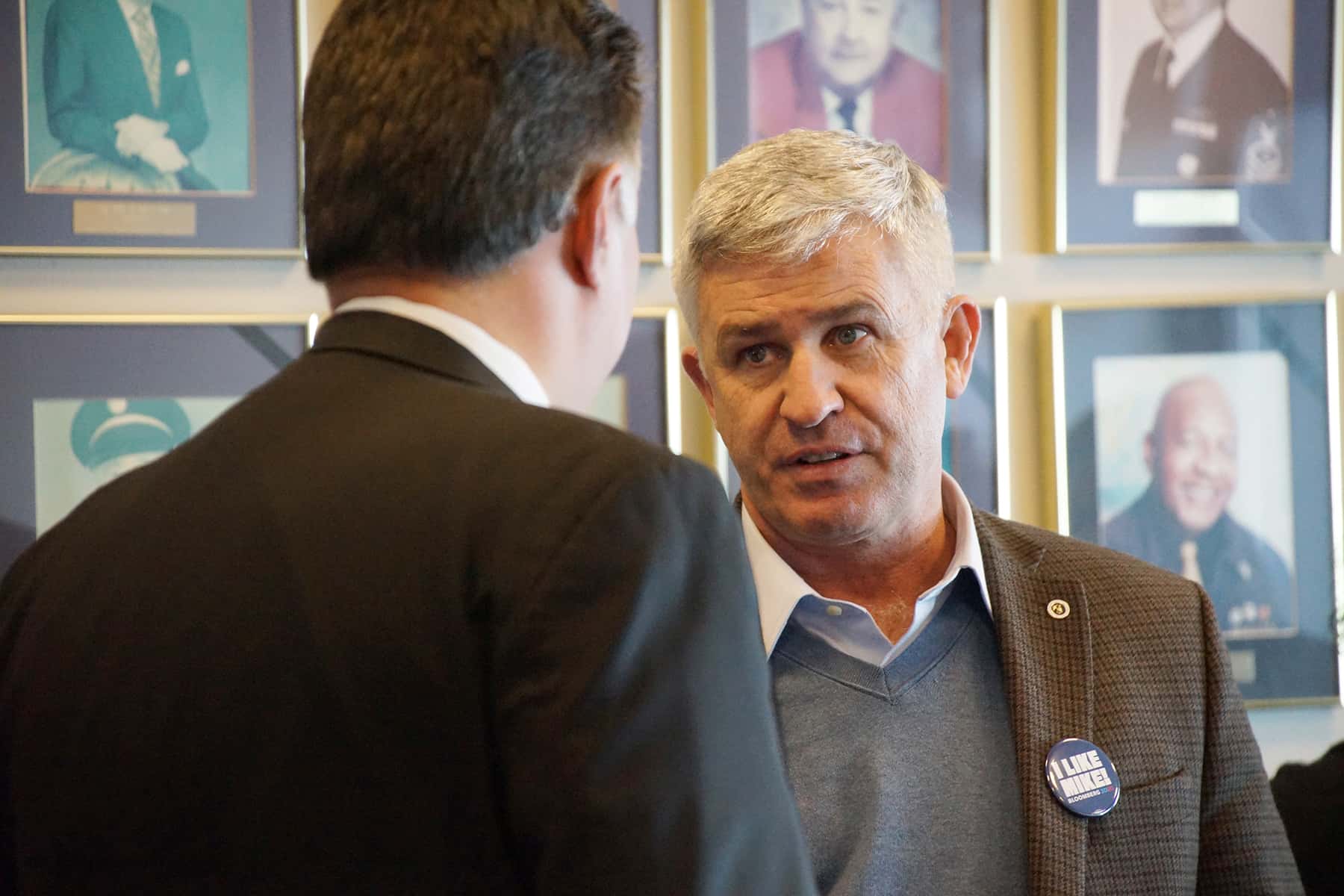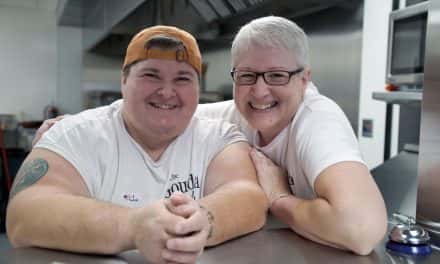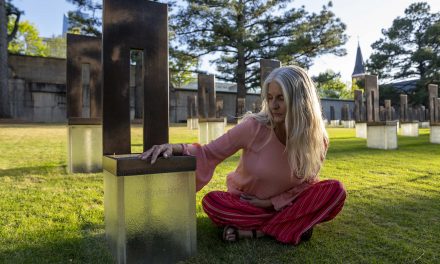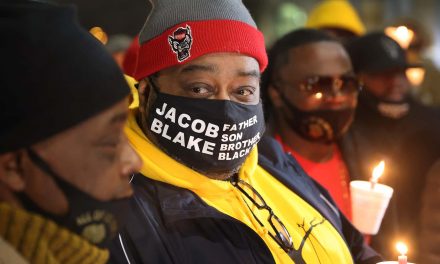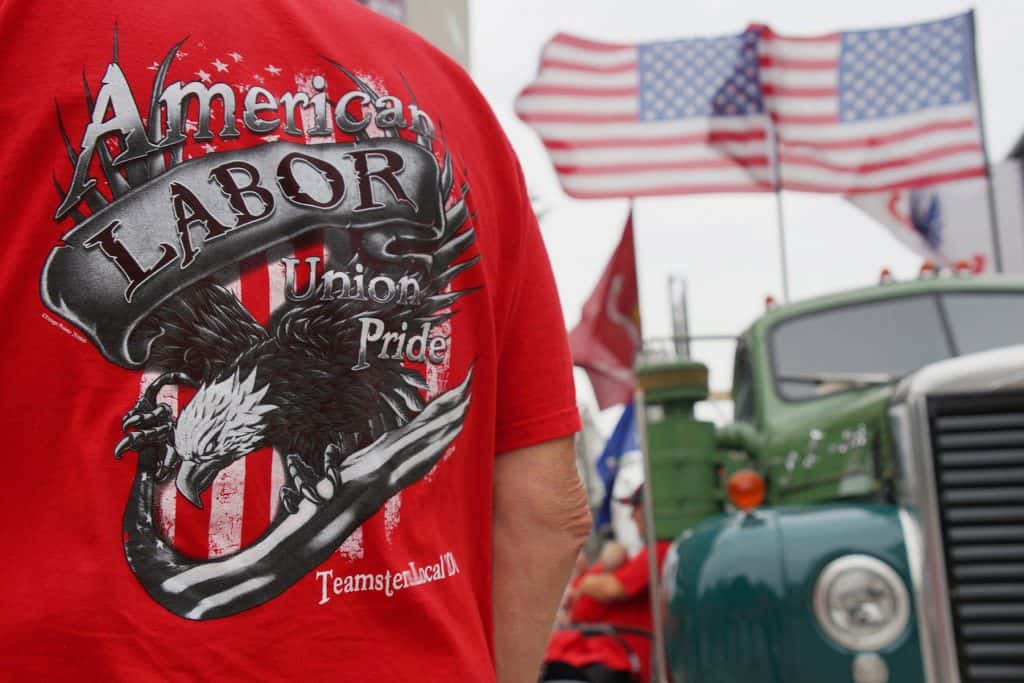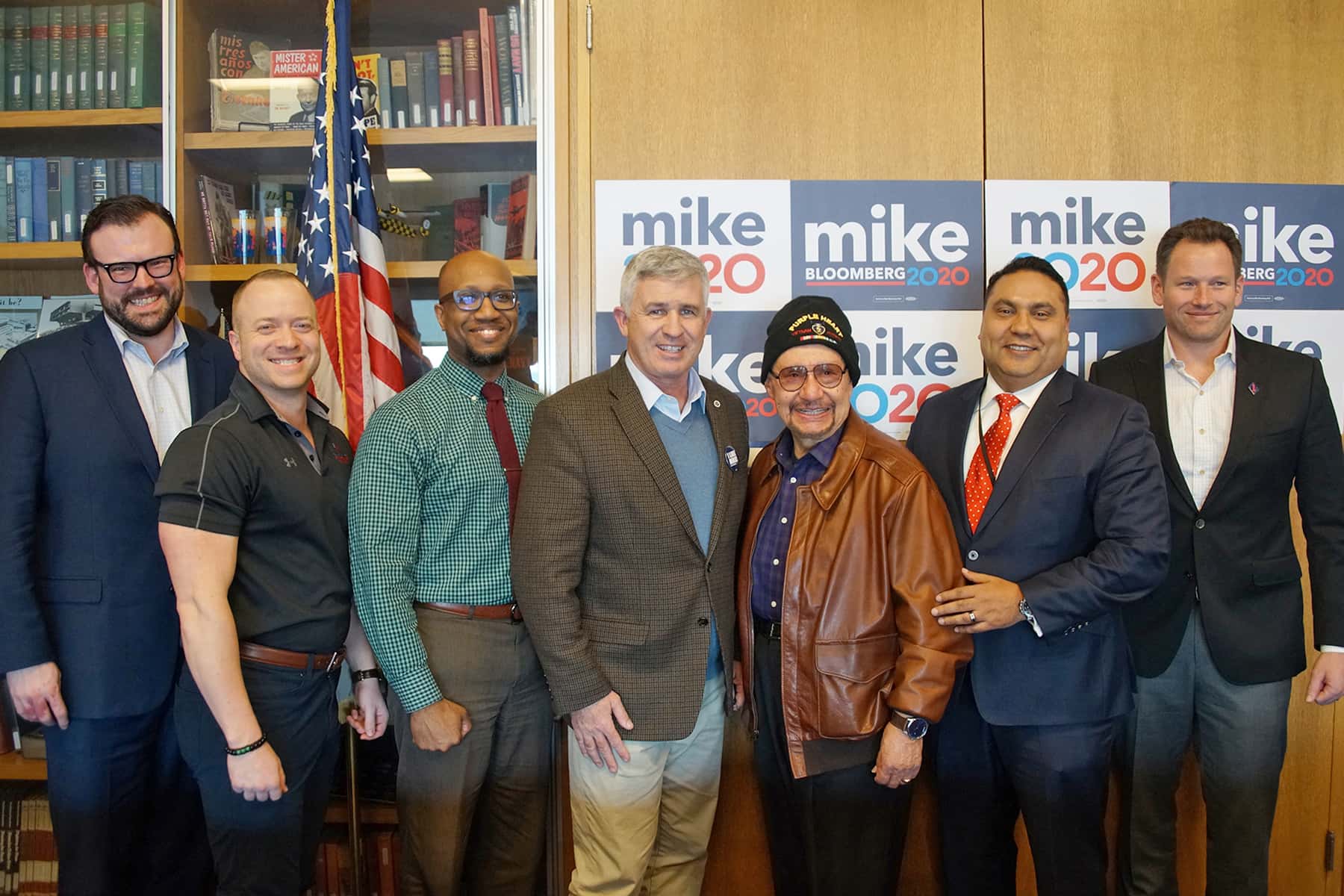
Retired Major General Paul Kennedy and Graham Pulliam visited Milwaukee on February 20 to meet with veterans and military families on behalf of Democratic presidential candidate Michael Bloomberg, and to gather policy input from local voices.
In January, Bloomberg revealed the formation of “Veterans and Military Families for Mike,” designed to connect with military voters during the 2020 race. Along with Kennedy, a retired U.S. Marine Corps two-star General, Pulliam – also a USMC veteran – leads the national effort for the initiative.
The team’s first stop in Wisconsin focused on Milwaukee. As part of a state-wide mission, the Wisconsin Veterans for Mike Bloomberg Leadership Committee engaged with veterans on the issues they care about. During the visit, members gathered information about local needs, in addition to compiling action steps for improving the Department of Veterans Affairs across the nation.
Their day started at the Dryhootch Coffeehouse on Brady Street, followed by a tour of the Milwaukee Homeless Veterans Initiative and the veteran-owned company Silver Leaf Signs and Graphics. The group then met at the Milwaukee County War Memorial Center for a Milwaukee Area Veterans Roundtable Discussion.
Several members of the local area’s veteran community attended the session to offer their insight and concerns, including Saul Newton, founded the Wisconsin Veterans Chamber of Commerce and US Army veteran; Eugene Manzanet of U.S. Bank and USMC veteran; and George Banda, retired Milwaukee Fireman and decorated US Army combat medic.
“I’ve seen the transition for myself from active duty to getting through school and then on to the business sector. It was a very fluid transition, but it took some time. There were some practices and principles, instilled in our Marine Corps training, that we can legitimately transfer to the business world. And, I benefited from having good mentors,” said Manzanet. “There is an incubator process, and an accelerator process as well. Both are dependent on quality mentorship opportunities, where individuals can harness those coming in through either process and help transition them more into the business environment.”
Manzanet felt there are very strong veteran groups already established, especially in Milwaukee. Efforts should be made to start tapping into that talent and bringing them to the forefront, because those are the individuals who have already established themselves. They exist within Northwestern Mutual, US Bank, PNC, and others large corporations where they have already developed positive skill sets.
“We need to bring them to the table as potential mentors. It does not have to be top secret that they’re transitioning from the Active Duty World into the Corporate World, or the Business Sector. That connection would help surround veterans with resources and access to answer questions – from the most basic to the most complicated – and make it more a comfortable environment for them to be in,” added Manzanet.
A constant theme during the Milwaukee tour was one of the things that made Bloomberg unique among the candidates running, his focus on economic empowerment for veterans and their families.
“Mike Bloomberg is making sure that our obligation to veterans and those who serve is not limited to the VA and medical benefits, but the comprehensive needs of individuals. That means supporting business ownership and entrepreneurship, and growing business leaders who can offer valuable perspectives to help craft strategy and policy platforms,” said General Kennedy. “He understands that we, as a country, need to provide greater support to veterans reentering the workforce because it’s not just the right thing to do. It’s a smart investment to make in our economic future. Veterans consistently take jobs below their capability and potential, with many of them only partially employed. A third of veterans with degrees and certifications work in jobs that don’t leverage their full education and training.”
General Kennedy talked about the echo chamber surrounding senior officials in Washington DC, and felt it was valuable to get feedback from places like Milwaukee where people were directly affected by policies.
“I’ve seen Mike re-characterize the conversation about veterans in America, and instead of viewing people that come out of these traumatic experiences as liabilities, they’re actually a source of great strength and ability. That’s why he hired about 600 people for Bloomberg LP, so he made a commitment to veterans long before he decided to run for President,” added General Kennedy.
After serving for years in the military, one of the biggest problems veterans face is adjusting to civilian life. Most are mentally unprepared for the transition and struggle without any support. The loss of identity has also been a factor, as veterans question their purpose after discharge.
“The military has the world’s best Alumni Network, and the world’s worst Alumni Association.” – Todd Connor, Founder of Bunker Labs
Wisconsin has a very patriotic population, but it would surprise most people to learn what parts of the state that soldiers actually come from. Wisconsin was traditionally seen as very rural area. Celebrating its status as the Dairy State, the perception of Wisconsin has been of a rural province. That image has bolstered the false narrative that soldiers come from farmland areas, when the facts clearly show they are coming from the cities.
Data details that the overwhelming majority of Wisconsin soldiers come from 6 counties out of 72. Those 6 counties are mostly from suburban and urban areas – the whole corridor of Milwaukee to Waukesha, all the way down to Kenosha and Racine. That area of Southeast Wisconsin is where the military population comes from.
Yet, the Wisconsin State Legislature is controlled by rural interests who are unwilling to invest resources where they are needed, which is also reflected in the partisan representation on the Federal level. Veterans are not being brought together, and resources are not getting to where they are needed, simply because of the political polarization that attributes ideas to being for or against one side.
“Mike has been very upfront about not being a veteran, but he believes that serving is the purest expression of citizenship,” said Pulliam. “So he is trying to de-stigmatize the current crop of kids that have come back. He actually speaks to his peers on Wall Street and inside the business community, saying they ought to try to bring these young people onboard as a potential goldmine of productivity and with leadership potential.”

